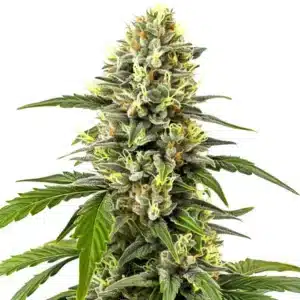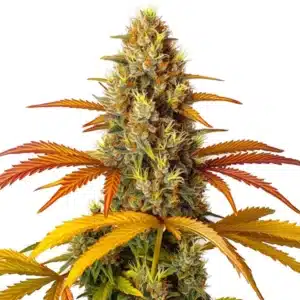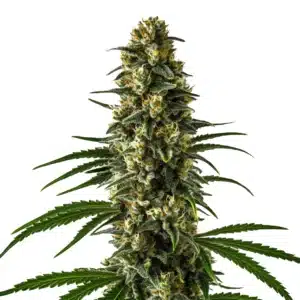
Amending Soil for Cannabis
Growing cannabis can be an incredibly rewarding experience, whether you are just getting started or have been cultivating for years. One of the most significant factors affecting the quality and yield of your cannabis plants lies in the soil. Amending soil for cannabis is a method to enhance the nutrient profile of your growing medium, effectively promoting healthier plants and yielding better harvests.
Why Soil Quality Matters
The quality of your soil plays a crucial role in ensuring the overall health of cannabis plants. A rich and balanced growing medium allows plants to absorb essential nutrients and moisture efficiently. When the soil lacks vital components, plants may face various deficiencies, leading to stunted growth, poor yields, and lower-quality buds. For instance, if leaves begin turning yellow or displaying spots, it’s often a sign that the plants may be nutrient deficient.
Recommended Strains
Cafe Racer
|
|
THC | 25% (High) |
|
|
Type | Feminized |
|
|
Yield | Medium |
|
|
Phenotype | 30% Indica / 70% Sativa |
Cafe Racer Autoflower
|
|
THC | 19% - 24% (Medium) |
|
|
Type | Autoflowering |
|
|
Yield | High |
|
|
Phenotype | 50% Indica / 50% Sativa |
Moreover, soil quality significantly impacts water retention, aeration, and plants’ ability to resist pests and diseases. For cannabis to thrive, it needs the right mix of organic matter, nutrients, and a diverse microbial population. By prioritizing soil quality, growers can provide their plants with everything necessary to flourish and produce abundant and potent flowers.
Promos & Deals
Key Amendments for Cannabis Soil
When it comes to amending soil, certain materials stand out for their effectiveness. Each amendment serves a unique role, contributing to the overall vitality of your growing medium. Here are some popular soil amendments you might consider incorporating:
- Compost: Enriches the soil with organic matter and improves its structure, facilitating better nutrient availability.
- Worm Castings: Packed with nutrients and beneficial microbes, these castings aid in robust plant growth.
- Perlite: Enhances aeration and drainage, helping to prevent soil compaction and allowing roots to breathe.
- Coco Coir: A sustainable option that retains moisture while ensuring good drainage, making it ideal for cannabis cultivation.
- Bone Meal: A source of phosphorus that encourages strong root development and enhances flowering.
Understanding the purpose of each amendment can help you tailor them to meet the specific needs of your soil. As you make adjustments, keep in mind that balance is key. Overloading your soil with certain amendments without considering the overall health of your medium can lead to imbalances and issues for your plants.
Choosing the Right Amendments
Selecting the right amendments heavily depends on your specific soil conditions. A soil test is highly recommended, as it provides crucial insights into what your plants require. For instance, if your soil is too compact, incorporating perlite or coco coir can significantly improve drainage. Conversely, if your soil is nutrient-poor, compost and worm castings can exponentially boost its richness.
Many growers enjoy creating a custom soil mix specifically tailored to their needs. A typical mix might involve high-quality potting soil combined with selected amendments to achieve the perfect balance. Don’t hesitate to experiment with various combinations; with a bit of trial and error, you can discover what works best for your cannabis plants!
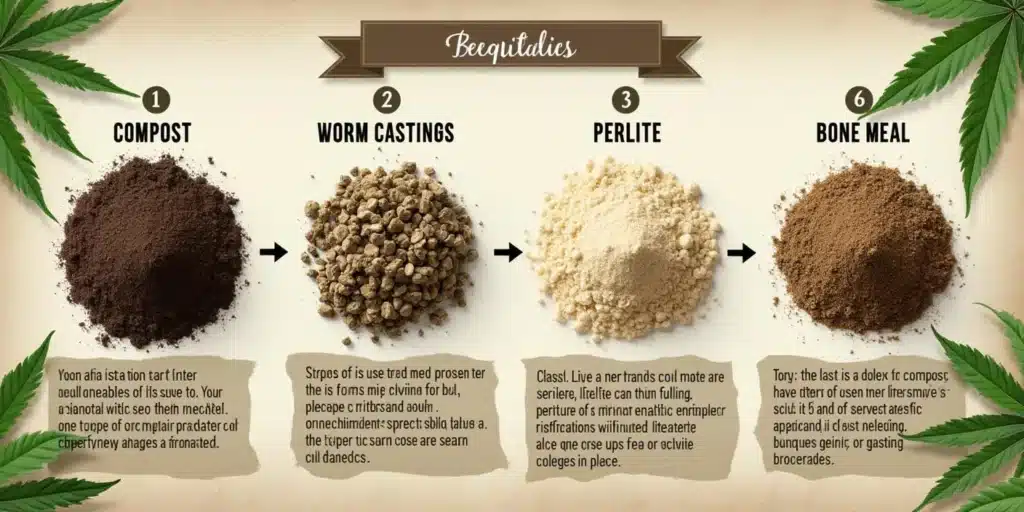
When to Amend Your Soil
The timing of soil amendments plays an important role in their effectiveness. For the best results, amend your soil before planting seeds or clones. This practice allows the amendments to integrate thoroughly into the soil and provides an instant boost for the young plants. However, regular amendments throughout the growth cycle can also prove beneficial.
During the flowering stage, cannabis plants require more nutrients than in earlier growth phases. This heightened need means that adding a balanced fertilizer or compost during this time can have a positive impact on bud development and product quality. Just remember that too many amendments can lead to nutrient burn, so it’s vital to keep a close eye on your plants and adjust accordingly.
pH Levels and Cannabis Growth
The pH level of the soil is fundamental in cannabis cultivation, as it dictates nutrient availability. For optimal growth, cannabis generally prefers a pH range between 6.0 and 7.0. Within this range, the plants can absorb nutrients efficiently. A pH that drifts too high or low can make it difficult for your plants to uptake vital elements they need.
It’s wise to conduct regular soil pH tests, especially after you’ve added amendments, since they can inadvertently alter the pH level. If an adjustment is needed, substances like lime can raise pH, while sulfur is effective at lowering it. Providing this attentive care is crucial to ensure your plants remain healthy and vibrant throughout their growing cycle.
Improving Soil Texture
The texture of your soil influences not only how water and air are retained but also how effectively roots can develop. Heavy clay soils can hinder drainage and aeration, while sandy soils may drain too quickly. To achieve the perfect balance, consider incorporating organic matter such as compost, which can significantly enhance soil texture, creating a crumbly structure ideal for healthy root systems.
Additionally, regularly turning and mixing amendments into the soil promotes improved texture over time. This method encourages a thriving microbial ecosystem, essential for breaking down organic matter and making nutrients readily available to your plants. The healthier your soil structure, the more robust your cannabis plants will be!
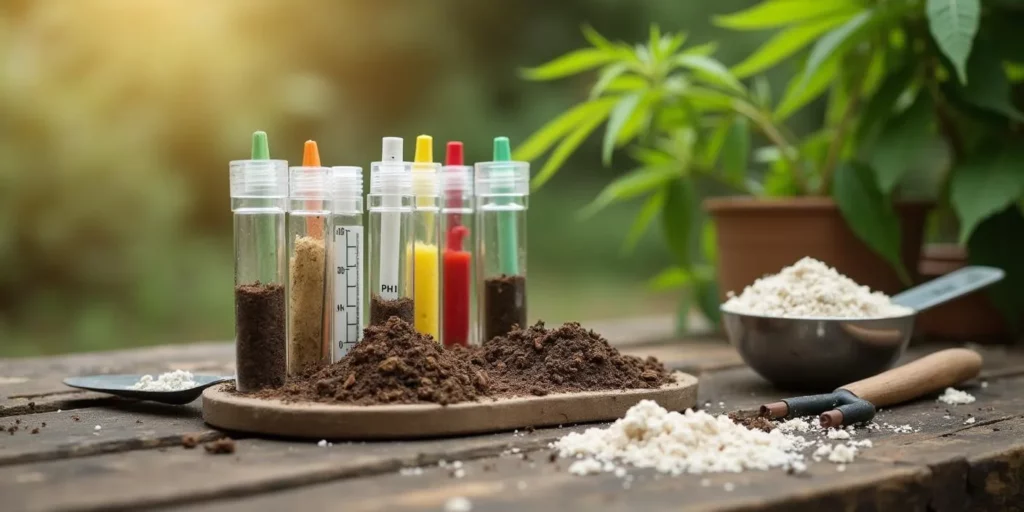
Monitoring Plant Health
Keeping a close eye on your plants is an essential part of the growing process. By observing leaf color, growth patterns, and overall vigor, you can gauge whether your soil amendments are yielding the desired effect. Healthy cannabis plants will showcase sturdy stems, vibrant green leaves, and robust root systems, all indicating that your soil is supporting them in the best possible way.
If you spot any signs of distress, take the time to evaluate your soil conditions. Indicators such as yellowing leaves or slow growth may suggest nutrient deficiencies or imbalances that need addressing. Being observant and proactive can help you make necessary adjustments sooner rather than later, ensuring your plants receive what they need to thrive.
Common Signs of Nutrient Deficiency
Several indicators can help you pinpoint potential nutrient deficiencies in your cannabis plants. Here are some common signs to watch for:
- Yellowing leaves: Often signifies nitrogen deficiency, as nitrogen is vital for healthy leaf growth.
- Purple stems: May suggest phosphorus deficiency, which is essential for energy transfer in plants.
- Brown spots: Frequently result from calcium or magnesium deficiencies, impacting overall plant health.
- Curled leaves: Can indicate potassium level issues, affecting water regulation in the plant.
By being vigilant and addressing these signs promptly, growers can adjust their soil amendments to ensure their plants receive the right nutrients exactly when they need them. Early intervention can make a significant difference in the success of your crop.
Practical Tips for Successful Soil Amendment
Amending soil for cannabis may seem overwhelming at first. Still, a few practical tips can make the process smoother and more effective. Most importantly, always test your soil before making amendments. This foundational step gives you valuable insights into what your plants require—and what they don’t!
Consider starting with smaller amounts of amendments and gradually increasing as needed. This conservative approach helps you avoid the pitfalls of over-amending, which can lead to poor plant health or nutrient lockout. Another great tip is to mix amendments thoroughly into the soil for even distribution, as layering them on top might not deliver the desired results.
Finally, keeping a gardening journal can be incredibly beneficial. Document your soil tests, the amendments you used, and your observations on plant health throughout the growing cycle. This record can serve as a valuable guide for your future grows, ensuring you continue refining your technique.

Three Recommended Cannabis Strains
To maximize the results from amended soil, selecting the right cannabis strain can make all the difference. Here are three strains worth considering for optimal growing conditions:
- Girl Scout Cookies: Well-known for its potency and versatility, this hybrid thrives in rich, nutrient-dense soil and produces impressive yields.
- Blue Dream: A favorite among both novice and experienced growers, this strain flourishes in well-draining soil that incorporates plenty of organic matter.
- White Widow: Famous for its balanced effects, this strain flourishes when provided with a nutritious environment and careful water management.
Choosing the right strain and ensuring it is paired with well-amended soil can lead to growing success like you’ve never experienced before. These strains not only respond well to soil amendments but also provide a rewarding cultivation experience.
FAQs
What are soil amendments?
Soil amendments are materials added to soil to improve its physical or chemical properties. These can include organic matter like compost, fertilizers, or minerals necessary for plant growth. The primary aim is to enhance soil fertility, drainage, and overall plant health.
How often should I amend my cannabis soil?
Soil amendments can be made before planting and periodically during the growing cycle. Regularly check your plants for any signs of nutrient deficiencies. If they show signs of stress, it may be time to introduce amendments. Remember, over-amending can risk nutrient burn, so proceed with care.
Can I amend soil during the flowering stage?
Absolutely! Adding amendments during the flowering stage can be advantageous, as plants require more nutrients at this time. Consider using compost teas or balanced fertilizers that cater to the specific needs of flowering cannabis plants, but keep a close eye on their health to monitor any changes.
Is it necessary to test soil pH?
Testing soil pH is highly advisable, as it significantly affects nutrient availability. Maintaining pH within the optimal range for cannabis (6.0 to 7.0) helps prevent nutrient lockout and ensures your plants can absorb the essential elements needed for healthy growth.
What if my soil is too compact?
If your soil feels too compact, it can hinder root growth and proper water drainage. To effectively remedy this, consider incorporating amendments like perlite or coco coir, which enhance aeration and drainage. Regularly turning the soil and adding organic matter will also help reduce compaction over time.




